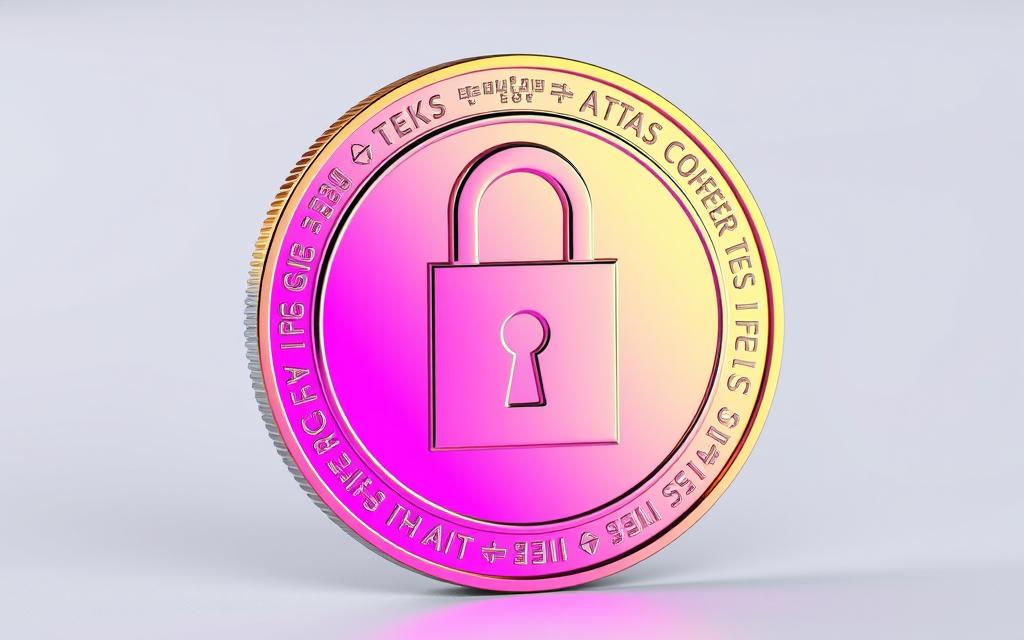Digital Currency 101: What Exactly Is Cryptocurrency?
Cryptocurrency, a revolutionary form of digital currency, is changing the way people think about and use money. Operating independently of traditional banking systems, it offers a decentralized alternative to conventional currency.
Unlike traditional fiat currencies, such as the US dollar, cryptocurrency utilizes blockchain technology to record transactions and manage its supply. This crypto space is rapidly evolving, attracting individuals and institutions alike.
As cryptocurrency continues to grow in importance within the global financial landscape, understanding its basics has become essential. This article will guide you through the fundamentals of crypto, its practical applications, and what the future may hold for this innovative form of currency.
Understanding What Is Crypto Currency

At its core, cryptocurrency is a digital asset that utilizes cryptography to secure transactions and control the creation of new units. This digital or virtual currency operates on decentralized networks, leveraging blockchain technology to facilitate secure and transparent transactions.
Defining Digital Assets
Cryptocurrencies are characterized by their decentralization, transparency, immutability, and limited supply. Unlike traditional digital payment methods such as credit cards, PayPal, and bank transfers, which rely on fiat currencies and central authorities, cryptocurrencies function on a peer-to-peer network. This means that transactions occur directly between individuals without the need for intermediaries.
The value of a cryptocurrency is derived from factors such as utility, scarcity, and market demand, rather than being backed by physical assets or government guarantees. The quality of the underlying technology and supply and demand dynamics play a crucial role in determining its price. As people increasingly adopt cryptocurrencies as both investment vehicles and alternative payment systems, understanding their fundamental characteristics becomes essential.
The use of cryptography not only secures transactions but also verifies the transfer of funds, ensuring the integrity of the network. As the world becomes more familiar with digital currencies, the distinction between traditional currencies and crypto continues to grow, highlighting the unique benefits and potential of this emerging financial landscape.
The Evolution of Digital Currency
Since the launch of the first cryptocurrency, the landscape of digital currency has evolved dramatically. Bitcoin, introduced in 2009 by the pseudonymous Satoshi Nakamoto, marked the beginning of this new era in financial transactions.
From Bitcoin to Modern Cryptocurrencies
The concept of cryptocurrency has its roots in earlier attempts at creating digital cash systems, such as DigiCash and B-money. However, it was Bitcoin’s whitepaper that provided a comprehensive solution to the double-spending problem, a challenge that had hindered previous efforts.
Bitcoin’s success inspired the creation of thousands of alternative cryptocurrencies, or altcoins, each with unique features and purposes. One significant milestone was the launch of Ethereum in 2015, which introduced blockchain-based smart contracts, expanding the utility of cryptocurrency beyond simple transactions.
| Year | Event | Impact |
|---|---|---|
| 2009 | Launch of Bitcoin | First cryptocurrency introduced |
| 2015 | Launch of Ethereum | Introduction of smart contracts on blockchain |
Over time, cryptocurrency has grown from a niche interest among cryptographers to a mainstream financial phenomenon, attracting institutional investors. The adoption of digital currency has been driven by advancements in technology and changing attitudes among people worldwide regarding money, privacy, and financial control.
How Cryptocurrency Works
At its core, cryptocurrency relies on blockchain, a distributed ledger that records transactions across a network of computers. This technology is fundamental to understanding how cryptocurrency transactions are initiated, verified, recorded, and secured.
Digital Transaction Mechanics
Cryptocurrency transactions involve the transfer of digital assets between parties. This process is facilitated by a pair of cryptographic keys: a public key and a private key. The public key serves as the address to which funds can be sent, much like an account number in traditional banking. The private key, on the other hand, is used to authorize transactions, akin to a password or PIN.
When a transaction is made, it is broadcast to the cryptocurrency’s network, where it is verified by nodes (computers connected to the network) and grouped into a block along with other transactions. This block is then added to the blockchain, a permanent and unalterable record of all transactions that have taken place on the network.
| Transaction Stage | Description |
|---|---|
| Initiation | The sender initiates a transaction using their private key. |
| Verification | Nodes on the network verify the transaction. |
| Block Creation | Verified transactions are grouped into a block. |
| Blockchain Update | The new block is added to the blockchain, updating the ledger. |
The security and trust inherent in cryptocurrency transactions are achieved through the decentralized nature of the blockchain and the use of advanced cryptography. This allows people to send value across the world without the need for traditional intermediaries like banks.

The role of miners or validators is crucial in this process, as they confirm transactions and add them to the blockchain. Their efforts are incentivized through the reward of newly minted cryptocurrency or transaction fees, ensuring the continued functioning of the network.
In conclusion, the mechanics of cryptocurrency transactions are rooted in blockchain technology, providing a secure, transparent, and efficient means of transferring digital assets. As the cryptocurrency landscape continues to evolve, understanding these fundamentals is essential for navigating the future of digital currency.
The Technology Behind Cryptocurrencies
Cryptocurrencies rely on a sophisticated technological framework that encompasses blockchain technology, advanced cryptography, and decentralized networks. This complex system is what enables secure, transparent, and efficient transactions without the need for a central authority.
Understanding Blockchain and Cryptography
At the heart of cryptocurrencies is the blockchain, a distributed ledger that records transactions across a network of computers. This technology achieves decentralization through a network of nodes that collectively maintain and verify the transaction ledger, ensuring that once a transaction is recorded, it cannot be altered.
The security and integrity of blockchain data are ensured through cryptographic principles, including hash functions and digital signatures. These cryptographic techniques are crucial for preventing unauthorized access and tampering with transaction data.
Different consensus mechanisms, such as Proof of Work and Proof of Stake, play a critical role in validating transactions and achieving agreement across the network. While both mechanisms have their advantages and limitations, they are essential for the functioning of cryptocurrencies.
The blockchain technology also enables the creation of smart contracts, particularly on the Ethereum blockchain. These contracts are self-executing, with the terms of the agreement written directly into code. They extend the functionality of cryptocurrencies beyond simple value transfer, enabling a wide range of applications.
By providing a transparent yet secure record of transactions, blockchain technology solves the “double-spending problem” that plagued earlier digital currency attempts. Moreover, it offers a level of security that is unparalleled in traditional financial systems, thanks to its decentralized nature and cryptographic security measures.
Popular Types of Cryptocurrencies

Cryptocurrency is not just about Bitcoin; there are numerous other digital currencies with unique features. The cryptocurrency market is vast, with thousands of different coins and tokens, each serving different purposes.
Beyond Bitcoin: The Diverse Crypto Ecosystem
The crypto ecosystem is diverse, comprising various categories of cryptocurrencies, including altcoins, stablecoins, utility tokens, security tokens, and governance tokens. Altcoins, such as Ethereum (ETH), Solana (SOL), and Cardano (ADA), offer alternative solutions to Bitcoin, often with faster transaction times or different consensus mechanisms.
Stablecoins like Tether (USDT) and USD Coin (USDC) are designed to maintain price stability, pegged to the value of traditional currencies like the US dollar. This stability makes them useful for transactions and as a store of value within the crypto market.
Leading Cryptocurrencies by Market Capitalization
The most popular cryptocurrencies, based on market capitalization, include Bitcoin (BTC), Ethereum (ETH), XRP (Ripple), BNB (Binance Coin), and others. Ethereum, for instance, stands out due to its smart contract functionality and role as a platform for decentralized applications (dApps) on the Ethereum blockchain.
Understanding the different types of cryptocurrencies and their use cases is crucial for navigating the crypto market. Whether you’re looking for a store of value, a medium of exchange, or a utility within specific platforms, there’s a cryptocurrency designed for that purpose.
The diversity in the cryptocurrency landscape is driven by innovation and the need for different solutions. As the market continues to evolve, new projects with innovative technologies or applications are emerging, contributing to the vast ecosystem of digital assets.
Cryptocurrency Wallets and Storage

To engage with cryptocurrencies, you need a digital wallet that can securely store your private and public keys. A cryptocurrency wallet is not just a storage device; it’s a gateway to your digital assets, enabling you to send, receive, and manage your cryptocurrencies.
Securing Your Digital Assets
Cryptocurrency wallets come in various forms, including hardware, software, and paper wallets. Hardware wallets are considered highly secure as they store your private keys offline, protecting against hacking attempts. Software wallets, on the other hand, are more convenient but also more vulnerable to cyber threats.
The choice of wallet depends on your security needs, the types of cryptocurrencies you hold, and your convenience requirements. It’s crucial to understand that wallets don’t store cryptocurrencies; they store the private keys that grant access to your holdings on the blockchain.
Managing your private keys securely is paramount. Losing your private key can result in the permanent loss of your cryptocurrency assets. Therefore, it’s essential to implement robust backup procedures and consider wallets with advanced security features like multi-signature authentication and seed phrases.
For those new to cryptocurrency, starting with a reputable software wallet might be a good option. However, for long-term holders of significant amounts of cryptocurrency, a hardware wallet is often recommended due to its enhanced security features.
To learn more about getting started with cryptocurrencies, you can visit our beginner’s guide, which provides a comprehensive overview of the cryptocurrency landscape.
Buying and Trading Cryptocurrency

To enter the world of cryptocurrency, one must first understand how to navigate exchanges and trading platforms. Buying cryptocurrency has become increasingly accessible, thanks to the rise of various digital exchanges.
Navigating Exchanges and Trading Platforms
Cryptocurrency exchanges are digital marketplaces where users can buy, sell, and trade crypto. There are two primary types of exchanges: centralized exchanges (CEXs) like Coinbase and Binance, and decentralized exchanges (DEXs) like Uniswap.
To buy cryptocurrency, users typically need to create an account on an exchange, complete identity verification, connect a payment method, and place an order. Understanding the different types of orders, such as market, limit, and stop orders, is crucial for effective trading.
When choosing an exchange, several factors should be considered, including security measures, available cryptocurrencies, trading fees, liquidity, and regulatory compliance. It’s also important to understand the fee structures associated with transactions, including exchange fees, network fees, and spread.
Transferring cryptocurrency between exchanges and personal wallets requires careful attention to security best practices. People can buy cryptocurrency with fiat currency or trade between different cryptocurrencies, offering flexibility in investment strategies.
Benefits and Advantages of Cryptocurrency
As digital currencies continue to evolve, their benefits are becoming more apparent, revolutionizing the financial landscape. Cryptocurrency offers a range of advantages that are driving its increasing adoption worldwide.
Why Digital Currencies Are Gaining Adoption
One of the key benefits of cryptocurrency is its ability to facilitate faster and cheaper cross-border transactions compared to traditional banking systems. By eliminating intermediaries and reducing fees, crypto transactions are more efficient and cost-effective.
The cryptocurrency provides financial inclusion for the unbanked and underbanked populations worldwide, who lack access to traditional banking services. Moreover, crypto transactions offer a balance between transparency and personal data protection, enhancing privacy while maintaining a public record of transactions.
| Advantages | Description |
|---|---|
| Faster Transactions | Cryptocurrency enables quicker cross-border transactions. |
| Reduced Fees | Lower transaction fees compared to traditional banking. |
| Financial Inclusion | Access to financial services for the unbanked and underbanked. |

Cryptocurrency puts users in control of their money without reliance on banks or other financial institutions. It also serves as a hedge against inflation and currency devaluation in countries with unstable economies. Furthermore, cryptocurrency enables programmable money through smart contracts, allowing for innovative financial applications.
The benefits of crypto are driving its adoption, empowering people in developing economies and those without access to traditional financial infrastructure. With its potential to reduce fraud through cryptographic security and immutable transaction records, cryptocurrency is poised to continue growing in importance.
Risks and Challenges of Cryptocurrency
As a highly speculative investment, cryptocurrency carries a multitude of risks that investors must be aware of. Understanding these risks is crucial for making informed decisions in the cryptocurrency market.
Potential Downsides
The cryptocurrency market is known for its volatility, with prices fluctuating significantly over short periods. This volatility can lead to substantial financial losses if not managed properly. For instance, the value of Bitcoin can drop dramatically in a matter of hours, resulting in considerable losses for unsuspecting investors.
Another significant risk associated with cryptocurrency is the threat of fraud and scams. According to the Federal Trade Commission, numerous individuals have reported being lured into bogus investment opportunities that promise unusually high returns. It’s essential for investors to conduct thorough research and due diligence before investing in any cryptocurrency.
| Risk Factor | Description | Impact on Investors |
|---|---|---|
| Volatility | Significant price fluctuations | Potential for substantial financial losses |
| Fraud and Scams | Bogus investment opportunities | Loss of investment due to deceit |
| Lack of Recoverability | Loss of private keys or recovery phrases | Permanent loss of cryptocurrency |
The irreversible nature of cryptocurrency transactions also poses a significant risk. If funds are sent to the wrong address or stolen, there is no recourse to recover the lost cryptocurrency. Moreover, the lack of regulatory clarity in many jurisdictions adds to the uncertainty, potentially impacting the value and usability of cryptocurrencies.

Investors must be aware of these risks and challenges when considering cryptocurrency as part of their investment strategy. By understanding the potential downsides, investors can make more informed decisions and better manage their exposure to risk.
Cryptocurrency Taxation and Legal Considerations

Cryptocurrency users must navigate complex tax laws to avoid penalties. The IRS treats cryptocurrencies as property, not currency, subjecting transactions to capital gains tax rules.
Navigating the Regulatory Landscape
The classification of cryptocurrency as property triggers capital gains tax obligations. Virtually all transactions, including trading, selling for fiat currency, and using cryptocurrency for purchases, can be taxable events.
Maintaining accurate records of all cryptocurrency transactions, including acquisition dates, cost basis, and disposal information, is crucial. The evolving regulatory landscape for cryptocurrencies around the world affects users in different jurisdictions.
Reporting requirements for cryptocurrency holdings and transactions on tax returns are mandatory. Failure to comply with cryptocurrency tax laws can result in penalties and interest.
As cryptocurrency exchanges increasingly cooperate with tax authorities, providing transaction data, it’s essential to approach cryptocurrency taxation with caution and consult qualified tax professionals, especially for international transactions.
The Future of Digital Currency
The future of cryptocurrency is poised to be shaped by emerging technologies and regulatory changes. As the industry continues to evolve, we can expect institutional adoption to increase, potentially leading to greater market stability. The development of Central Bank Digital Currencies (CBDCs) may also influence the landscape, offering a new form of digital currency.
Technological innovations will likely play a crucial role in shaping the future of cryptocurrency. To stay informed, investors should monitor these developments closely, considering both the potential benefits and risks associated with this rapidly evolving space.
FAQ
How does blockchain technology support cryptocurrency transactions?
Blockchain technology is a decentralized, digital ledger that records transactions across a network of computers. It ensures the security and integrity of cryptocurrency transactions by using advanced cryptography and a consensus mechanism to validate transactions.
What is the role of mining in the cryptocurrency ecosystem?
Mining is the process of validating transactions and adding them to the blockchain. Miners use powerful computers to solve complex mathematical problems, which helps to secure the network and verify transactions. In return, miners are rewarded with a certain amount of cryptocurrency.
How do I store my cryptocurrency securely?
To store cryptocurrency securely, you can use a reputable cryptocurrency wallet, such as a hardware wallet or a software wallet. It’s essential to follow best practices, such as enabling two-factor authentication and keeping your private keys safe.
Can I use cryptocurrency for everyday transactions?
Yes, many businesses and merchants accept cryptocurrency as a form of payment. You can use cryptocurrency to purchase goods and services online or in-person, depending on the merchant’s acceptance.
How do cryptocurrency exchanges work?
Cryptocurrency exchanges are online platforms that allow users to buy, sell, or trade cryptocurrencies. They typically provide a user interface to facilitate transactions, as well as tools for managing accounts and tracking market data.
What are the tax implications of investing in cryptocurrency?
The tax implications of investing in cryptocurrency vary depending on your jurisdiction and the specific tax laws in place. In general, cryptocurrency is considered a capital asset, and gains or losses are subject to capital gains tax.
How does the value of cryptocurrency fluctuate?
The value of cryptocurrency can fluctuate based on supply and demand in the market. Factors such as adoption rates, regulatory changes, and market sentiment can influence the value of cryptocurrency.
Can I invest in cryptocurrency through a traditional investment account?
Some investment platforms and brokerages now offer cryptocurrency investment options, such as exchange-traded funds (ETFs) or cryptocurrency-based investment products. However, it’s essential to check the specific investment options and fees associated with these products.















